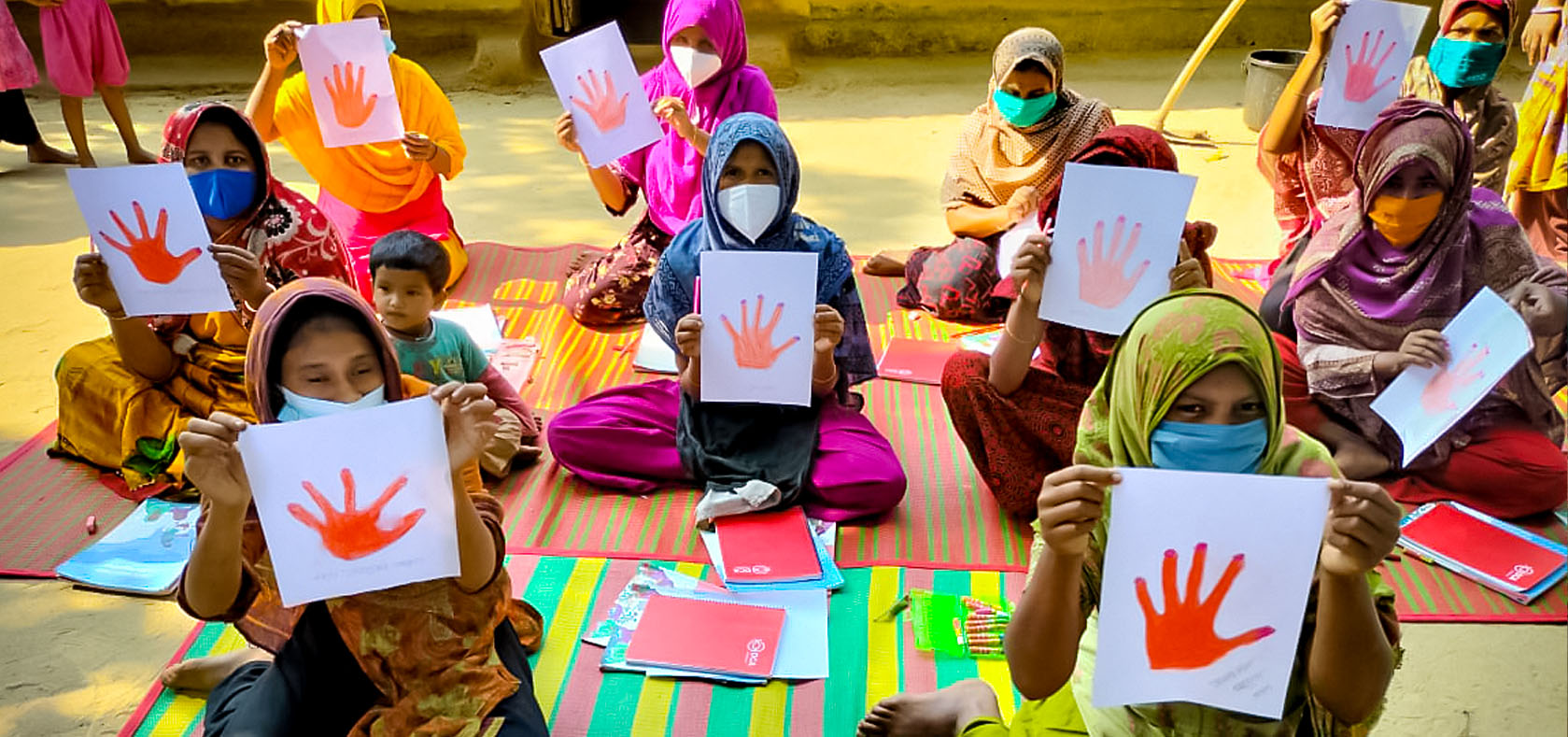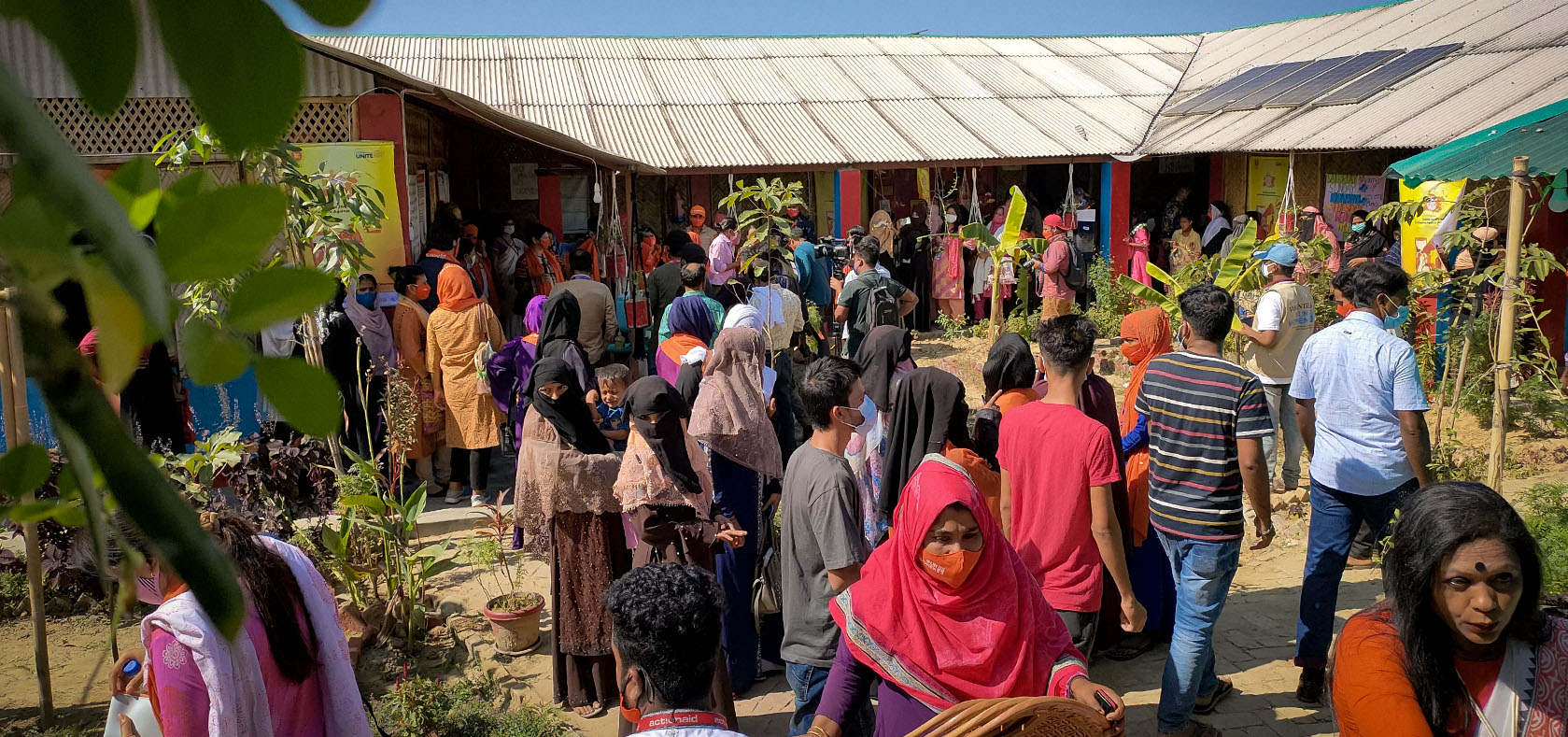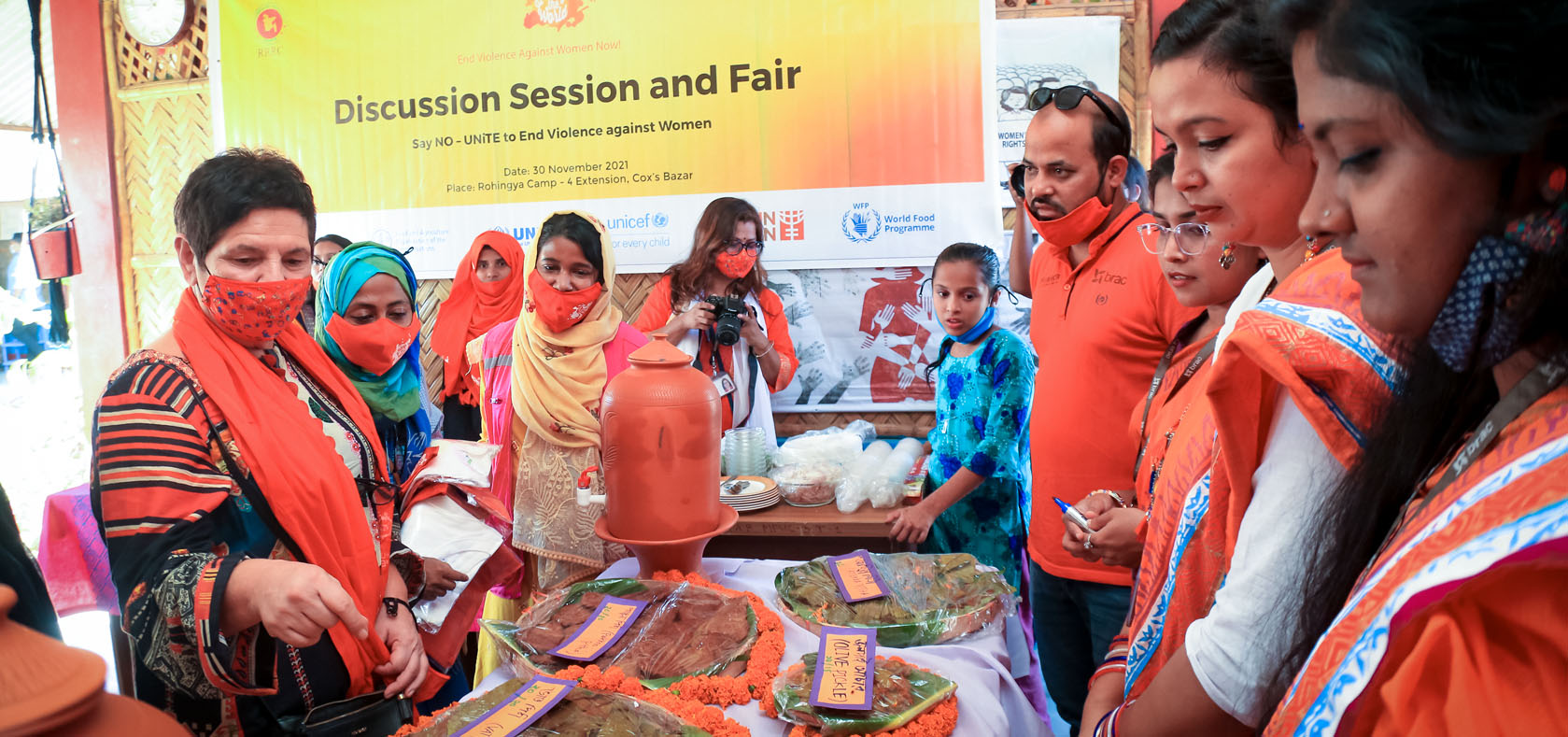Rohingya refugees in Bangladesh join UN campaign against gender-based violence
Date:
Author: Mahmudul Karim

Cox’s Bazar, Bangladesh — Cultural practices like child marriage and polygamy were highlighted as threats to the safety of women and girls in Rohingya refugee camps as the refugees and humanitarian aid workers participated in the United Nations 16 Days of Activism against Gender-based Violence.
UN Women and other aid agencies organized many events from 25 November to 10 December 2021 in the camps in Cox’ Bazar for the refugees who had fled from military attacks in Myanmar.
UN Women partnered with DanChurchAid, the Danish non-governmental organization, to organize discussions, games and fairs in the camps and surrounding Bangladeshi communities in Ukhiya, Teknaf and Cox’s Bazar Sadar. And in UN Women Multi-purpose Women’s Centers in Camps 3 and 5, sessions were organized to make Rohingya women and girls more aware of services for gender-based violence offered by UN Women and its partner BRAC, the international development agency based in Bangladesh.

On November 30, UN Women organized a seminar and a fair in Rohingya Camp 4 Extension in partnership with ActionAid. United Nations Food and Agriculture Organization (FAO), the Office of the United Nations High Commissioner for Refugees (UNHCR), United Nations Children’s Fund (UNICEF), and World Food Programme (WFP). Representatives from local and international organizations and government authorities in Cox's Bazar attended.
Speakers at the seminar emphasized their efforts to prevent violence against women in the camp.
"The rising percentage of polygamy and illiteracy in the Rohingya camp concerns us much,” said a Rohingya volunteer who is helping women and girls. “One of the most pressing challenges in the camps is child marriage. Many refugees are unaware of the marriage age limit. The number of cases of gender-based violence is also rising as a result of these major causes. We are attempting to raise awareness about the dangers of child marriage and polygamy."
Additional Refugee Relief and Repatriation Commissioner of Bangladesh, Shamsud Douza, also said he sees child marriage and polygamy as key reasons for the rise in violence against women in the camp.

Said Tanzila Tasnim, Clinical Psychologist and Regional Coordinator at the Ministry of Women and Children's Affairs: “For the good of humanity, we are here to provide humanitarian help to the Rohingya. Parents must endeavour to guarantee that males, as well as daughters, are not harmed.”
Representatives from Armed Police Battalions 8 and 14 of Bangladesh said they were committed to ending gender-based violence and ensuring the Rohingya community's safety.
Flora Macula, UN Women's Sub-Office Head in Cox’s Bazar, vowed zero tolerance for violence against women and called for all groups to continue cooperating to solve the problem.